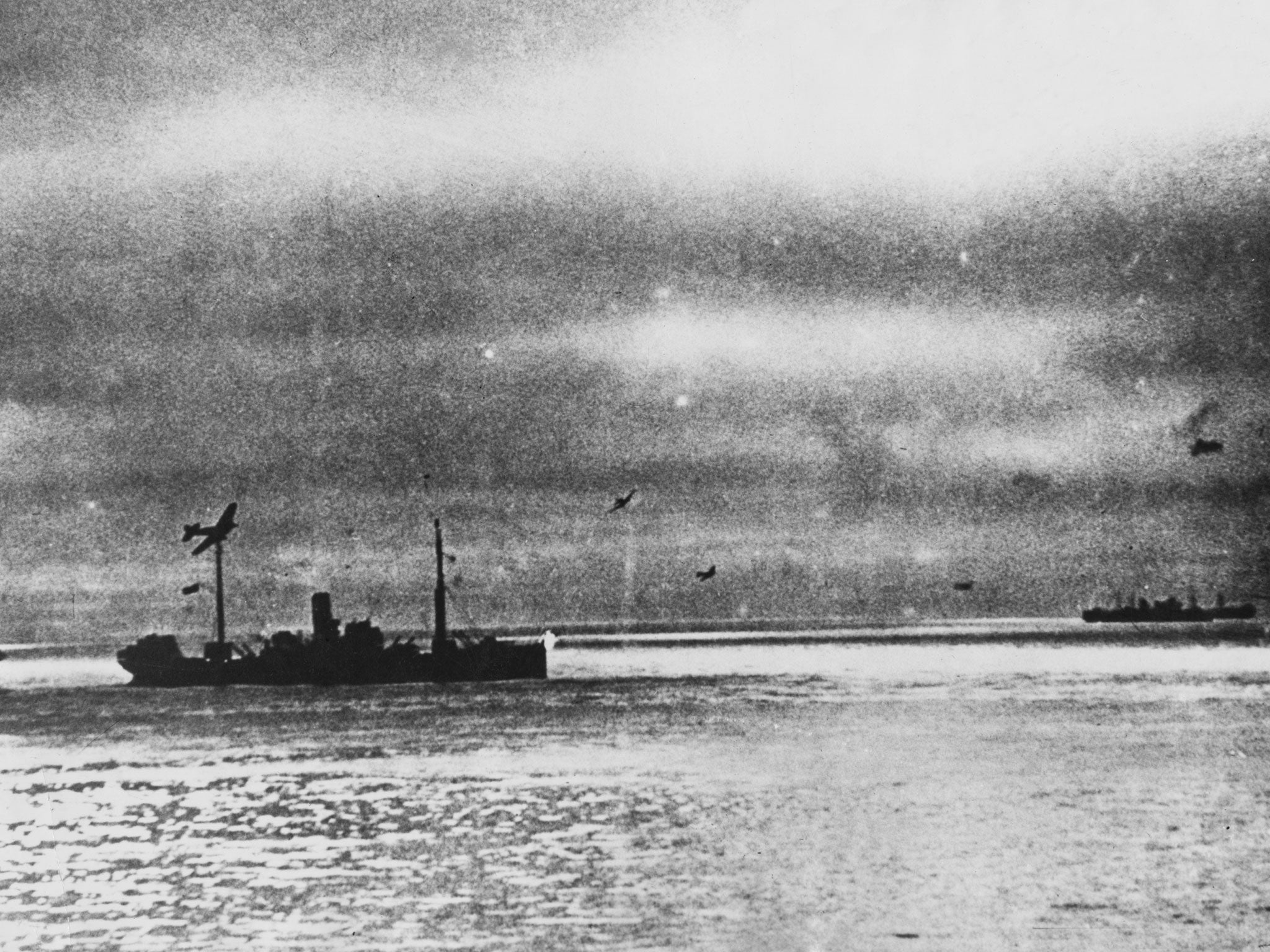In from the cold? The race to honour Arctic convoy heroes
The treacherous Arctic convoys undertaken by Allied ships in the Second World War were described as ‘the worst journey in the world’. Jonathan Brown reports on attempts to track down the survivors so they can get the recognition they deserve

There can be little doubt that the “hell run” of the Arctic convoys fully merited Winston Churchill’s description of it as the “worst journey in the world”.
The ships, heaving in heavy seas, became slowly entombed in ice spray as they sailed across the top of the world, stalked through the perpetual darkness of the polar winter by remorseless packs of U-boats.
It took more than 60 years for the British government to acknowledge the extraordinary contribution made by the merchant convoys and their Navy escorts with the creation just last year of the Arctic Star medal. Now Russian President Vladimir Putin is being urged to make good on his promise and hasten the award of one of Russia’s highest honours to the dwindling band of survivors.
This summer, in a welcome outbreak of cordiality between London and Moscow, Mr Putin presented the Ushakov Medal to 20 British veterans from the ships which brought four million tonnes of desperately needed military and civilian supplies to the Soviet Union during the Second World War. But relatives fear that time could be running out for the others, now in their nineties, who did not receive the accolade at the Downing Street ceremony.
It is thought there could be as few as 100 men still alive who reached Russian waters after taking part in the convoys, which claimed 3,000 of their fellow mariners when 104 merchant and 16 military vessels were sunk in icy waters.
John Harlock, whose father was a veteran of five missions to Murmansk, said he still does not know what is happening after being invited to apply for his medal by the Russian Embassy in the summer.
“We knew this might take some time, but you really don’t want to leave these men hanging on for too long. Every day you read obituaries of those who served bravely in the Second World War and time is running out,” he said.
The Westminster Russia Forum, which represents prominent Russians living in the UK, has already called for “swift decision-making” in Moscow to speed up the process. The Ushakov Medal, named after one of Russia’s most celebrated admirals, is among the country’s highest honours for defending the Motherland.
In June the Foreign Office lifted the ban on British mariners receiving the award, which had already been conferred on convoy sailors from the United States, Australia and Canada. Unlike the Arctic Star, which can be given to anyone who served north of the Arctic Circle, the Ushakov Medal is reserved only for those who reached a Russian port. It cannot be awarded posthumously.
Mr Harlock’s father, Commander William Mark Harlock, now aged 92, was a navigating and torpedo officer on board the destroyer HMS Vigilant, which acted as an escort in 1943.
“We were very conscious about what was going on and we knew the Russians were in a terrible state,” he said. “We knew there was help going in through the Persian Gulf, but it was only a trickle.”
Thirty-strong convoys would rendezvous off Iceland, with ships sailing from the United States loaded with everything from tanks to corned beef. Some did not make it across the Atlantic.
The two-week voyages placed extraordinary physical and psychological pressure on the crews. “When a ship went down it was so quick. But it was pointless leaving your position. You had to look after yourself and not abandon your sector,” Commander Harlock, who trained with the Duke of Edinburgh at the Britannia Royal Naval College in Dartmouth, said.
“The worst-case scenario was a submarine getting inside the convoy. But the weather posed a greater risk. Sometimes it was so bad you could only make three to four knots. Sometimes the ship would be hit by huge waves and rear up into the sky. The salt from the spray would freeze, making the ship top-heavy and it could just roll over.”
Sailors used pick-axes to smash off the ice; tanks would roll free in the mountainous seas, punching through the hulls. Anyone falling overboard was dead within minutes.
Crews – wearing every item of clothing they possessed – rotated through four-hour shifts: “Your only thought was about getting into your hammock and getting some sleep.” Once the ships arrived in Murmansk the crew were not allowed to go ashore. Sentries were posted at the bottom of the gang-plank, although Commander Harlock recalls bribing one guard with a cigarette and venturing on to land where he went skiing for the first time.
Andrey Makarenko of the Russian embassy in London told The Independent that not all the names of Arctic convoy veterans had been provided by the UK authorities, because of data protection rules. He said officials had worked flat-out over the summer to process the applications and forward a list of names to Moscow for consideration. Anyone who has completed the application will receive a medal, he said.
“Now we need to wait until a special decree will be signed, the medals would be minted and delivered to the UK. After that we will be ready to start the awarding process,” he added.
Subscribe to Independent Premium to bookmark this article
Want to bookmark your favourite articles and stories to read or reference later? Start your Independent Premium subscription today.

Join our commenting forum
Join thought-provoking conversations, follow other Independent readers and see their replies